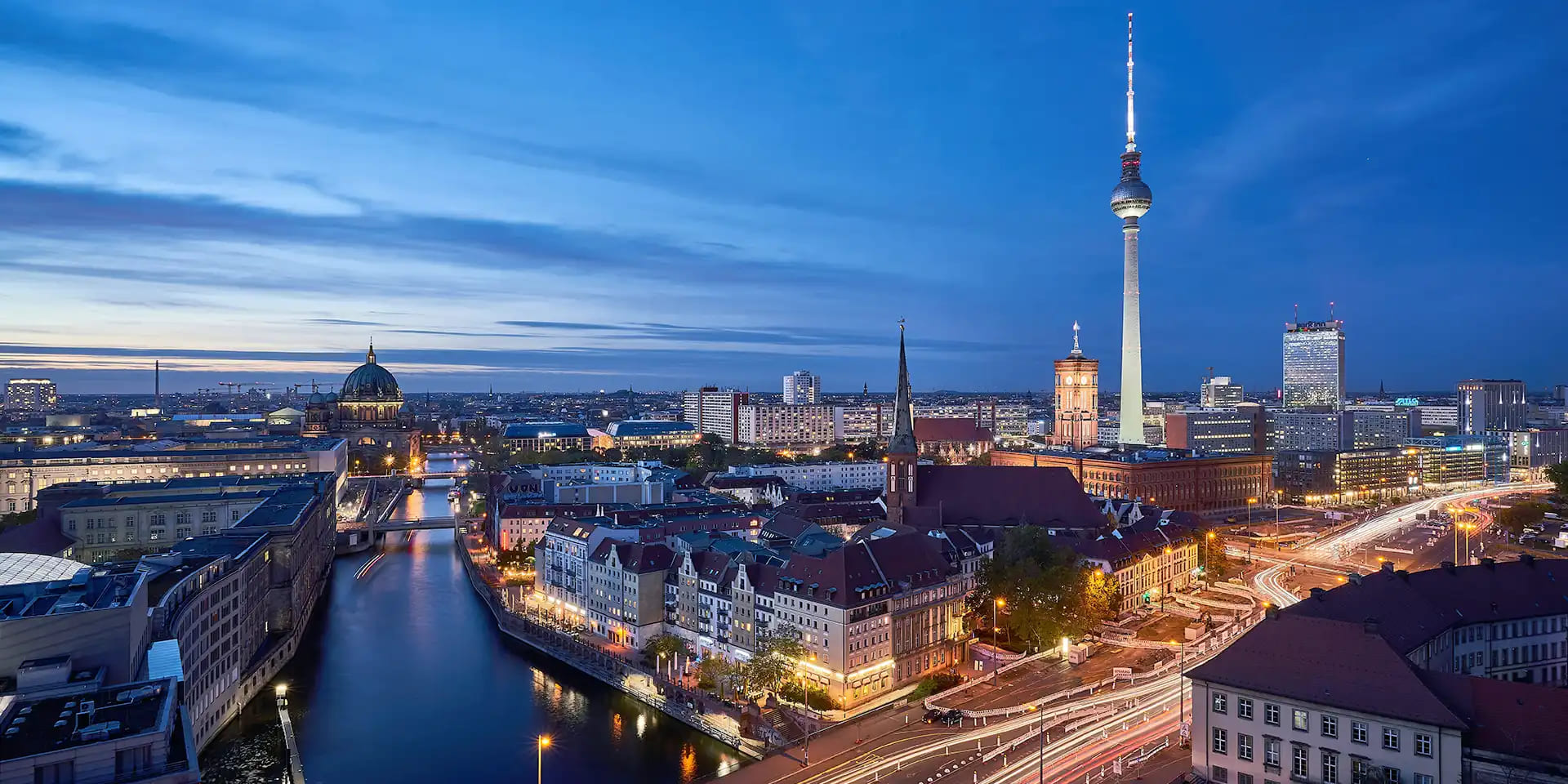
Germany Travel Guide: History, Culture & Fairytale Castles
Explore GERMANY
GERMANY
Germany: A Land of History, Culture & Fairytale Castles
Germany is a country rich in history, innovation, and natural beauty, offering everything from charming medieval towns to cutting-edge cities. Whether you're exploring Berlin’s cultural landmarks, driving on the Autobahn, or sipping beer at Oktoberfest, Germany offers a perfect mix of history, adventure, and modern experiences. From the fairytale castles of Bavaria to the vibrant streets of Hamburg, Germany is a must-visit destination for history buffs, beer lovers, and nature enthusiasts alike.
Learn More
Frequently Asked Questions: Germany
Germany has four distinct seasons, and the best time to visit depends on your interests:
- April–June (Spring): Best for mild weather, blooming landscapes, and fewer tourists.
- July–August (Summer & Peak Season): Ideal for festivals, outdoor activities, and warm weather.
- September–November (Fall): Great for Oktoberfest, autumn foliage, and wine festivals.
- December–February (Winter): Best for Christmas markets, skiing in the Alps, and cozy cafés.
- Brandenburg Gate (Berlin) – A symbol of German unity and history.
- Neuschwanstein Castle (Bavaria) – The fairy-tale castle that inspired Disney’s Cinderella Castle.
- Berlin Wall & East Side Gallery – A historic site featuring murals and street art.
- Cologne Cathedral – A UNESCO-listed Gothic masterpiece.
- Romantic Road – A scenic route passing through charming medieval towns and castles.
- Oktoberfest (Munich) – The world-famous beer festival, held every September-October.
- Black Forest – A stunning region filled with hiking trails, cuckoo clocks, and spa towns.
- Heidelberg Castle – A beautifully preserved medieval castle overlooking the Neckar River.
- Miniatur Wunderland (Hamburg) – The largest model railway in the world.
- Dresden’s Old Town – A Baroque gem filled with historical landmarks.
- Bratwurst – Germany’s famous grilled sausages, best enjoyed with mustard.
- Pretzels (Brezn) – Soft, salty, and often paired with beer or cheese dip.
- Schnitzel – A breaded and fried meat dish, usually served with potato salad.
- Sauerkraut & Bratkartoffeln – Fermented cabbage and crispy fried potatoes.
- Currywurst – A popular Berlin street food featuring sausage in curry ketchup sauce.
- Kartoffelsalat (Potato Salad) – A staple side dish, served warm or cold.
- Eisbein (Pork Knuckle) – A hearty Bavarian dish, often slow-cooked and served with sauerkraut.
- Käsespätzle – Germany’s answer to mac and cheese, made with egg noodles and melted cheese.
- Schwarzwälder Kirschtorte (Black Forest Cake) – A delicious chocolate cake layered with cherries and whipped cream.
- German Beer & Glühwein – Enjoy a cold pint of Pilsner or a warm cup of mulled wine in winter.
- Flights: Arrive at major airports like Frankfurt (FRA), Munich (MUC), and Berlin Brandenburg (BER).
- Trains: Germany has one of the best rail networks in Europe—Deutsche Bahn connects major cities quickly.
- Public Transport: U-Bahn (subway) and S-Bahn (commuter trains) operate in major cities.
- Car Rentals & Autobahn: Perfect for road trips through Bavaria or the Romantic Road.
- Biking: Many cities, like Berlin and Munich, are extremely bike-friendly.
- Taxis & Ride-Hailing Apps: Available, but public transport is usually more efficient.
- For U.S. travelers: No visa required for stays up to 90 days, but a valid passport is necessary.
- For international travelers: Check Germany’s Schengen visa requirements based on nationality.
- EU Travelers: Can enter freely with a valid national ID or passport.
Discover Germany’s Rich History, Culture & Fairytale Castles
- Currency: Euro (€ EUR).
- Credit cards are widely accepted, but cash is useful for smaller businesses and rural areas.
- ATMs are available throughout the country, offering good exchange rates.
- Currency exchange is available at airports, train stations, and exchange offices.
- German is the official language.
- English is widely spoken in tourist areas, hotels, and restaurants.
- Learning basic German phrases like “Danke” (Thank you) or “Guten Tag” (Good day) is appreciated.
- Be punctual – Germans value timeliness in both social and business settings.
- Tipping is expected – Unlike in many European countries, service staff rely on tips.
- Recycling is serious business – Follow Germany’s strict waste sorting rules.
- Quiet hours are observed – Avoid making loud noise in residential areas after 10 PM.
- Handshakes are the standard greeting – A firm handshake is seen as polite and professional.
- Follow pedestrian and cycling rules – Jaywalking is frowned upon, and bike lanes should not be blocked.
- Restaurants: 5–10% tip is standard, but always hand it to the server rather than leaving it on the table.
- Bars & Cafés: Rounding up the bill is common.
- Hotels: €1–2 per bag for bellhops, €2–5 per night for housekeeping.
- Taxis: Tipping is not required, but rounding up is polite.
- Tour Guides & Excursions: €5–10 per person for excellent service.
- For peak season (June–September & December Christmas markets): Book 6–12 months in advance for hotels and flights.
- For off-season travel (January–May & October–November): Booking a few weeks ahead is usually fine.
- For Oktoberfest: Book at least a year in advance for accommodations.
- No COVID-19 test is required for entry, but check for updates before traveling.
- Public transport in some cities requires validation—always validate your ticket before boarding.
- Germany has strict speed limits in many areas, even on the Autobahn.
Contact us at 281-229-0862 or admin@pointmetoparadise.com
